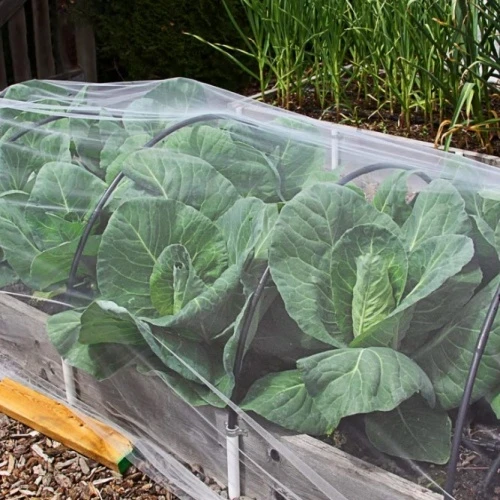-
 Afrikaans
Afrikaans -
 Albanian
Albanian -
 Amharic
Amharic -
 Arabic
Arabic -
 Armenian
Armenian -
 Azerbaijani
Azerbaijani -
 Basque
Basque -
 Belarusian
Belarusian -
 Bengali
Bengali -
 Bosnian
Bosnian -
 Bulgarian
Bulgarian -
 Catalan
Catalan -
 Cebuano
Cebuano -
 China
China -
 Corsican
Corsican -
 Croatian
Croatian -
 Czech
Czech -
 Danish
Danish -
 Dutch
Dutch -
 English
English -
 Esperanto
Esperanto -
 Estonian
Estonian -
 Finnish
Finnish -
 French
French -
 Frisian
Frisian -
 Galician
Galician -
 Georgian
Georgian -
 German
German -
 Greek
Greek -
 Gujarati
Gujarati -
 Haitian Creole
Haitian Creole -
 hausa
hausa -
 hawaiian
hawaiian -
 Hebrew
Hebrew -
 Hindi
Hindi -
 Miao
Miao -
 Hungarian
Hungarian -
 Icelandic
Icelandic -
 igbo
igbo -
 Indonesian
Indonesian -
 irish
irish -
 Italian
Italian -
 Japanese
Japanese -
 Javanese
Javanese -
 Kannada
Kannada -
 kazakh
kazakh -
 Khmer
Khmer -
 Rwandese
Rwandese -
 Korean
Korean -
 Kurdish
Kurdish -
 Kyrgyz
Kyrgyz -
 Lao
Lao -
 Latin
Latin -
 Latvian
Latvian -
 Lithuanian
Lithuanian -
 Luxembourgish
Luxembourgish -
 Macedonian
Macedonian -
 Malgashi
Malgashi -
 Malay
Malay -
 Malayalam
Malayalam -
 Maltese
Maltese -
 Maori
Maori -
 Marathi
Marathi -
 Mongolian
Mongolian -
 Myanmar
Myanmar -
 Nepali
Nepali -
 Norwegian
Norwegian -
 Norwegian
Norwegian -
 Occitan
Occitan -
 Pashto
Pashto -
 Persian
Persian -
 Polish
Polish -
 Portuguese
Portuguese -
 Punjabi
Punjabi -
 Romanian
Romanian -
 Russian
Russian -
 Samoan
Samoan -
 Scottish Gaelic
Scottish Gaelic -
 Serbian
Serbian -
 Sesotho
Sesotho -
 Shona
Shona -
 Sindhi
Sindhi -
 Sinhala
Sinhala -
 Slovak
Slovak -
 Slovenian
Slovenian -
 Somali
Somali -
 Spanish
Spanish -
 Sundanese
Sundanese -
 Swahili
Swahili -
 Swedish
Swedish -
 Tagalog
Tagalog -
 Tajik
Tajik -
 Tamil
Tamil -
 Tatar
Tatar -
 Telugu
Telugu -
 Thai
Thai -
 Turkish
Turkish -
 Turkmen
Turkmen -
 Ukrainian
Ukrainian -
 Urdu
Urdu -
 Uighur
Uighur -
 Uzbek
Uzbek -
 Vietnamese
Vietnamese -
 Welsh
Welsh -
 Bantu
Bantu -
 Yiddish
Yiddish -
 Yoruba
Yoruba -
 Zulu
Zulu
Understanding Wire Mesh Gauge and Its Applications in Various Industries
Understanding the Gauge of Wire Mesh A Comprehensive Guide
Wire mesh is a versatile material used in a variety of applications, from construction to landscaping and even industrial processes. One of the crucial aspects that determine the suitability of wire mesh for a particular purpose is its gauge, which refers to the thickness of the wire used in the mesh. Understanding wire mesh gauge is essential for selecting the right type for your project, ensuring strength, durability, and functionality.
What is Wire Gauge?
The term gauge in wire mesh refers to a numerical measurement that indicates the thickness of the wire used in the mesh. A lower gauge number means a thicker wire, while a higher gauge number indicates a thinner wire. For example, a 10-gauge wire is thicker than a 20-gauge wire. The gauge system is somewhat counterintuitive because as the gauge number increases, the wire becomes thinner.
Wire gauge is critical because it directly affects the tensile strength and overall stability of the mesh. The choice of gauge will depend significantly on the intended use of the wire mesh and the environmental conditions it will face.
Different Types of Wire Mesh and Their Gauges
1. Welded Wire Mesh This type consists of metal wires that are welded together at intersections. Commonly used in construction, livestock fencing, and security applications, welded wire mesh typically ranges from 10 to 16 gauge. Thicker gauges (lower numbers) offer increased strength and are preferred for heavy-duty applications.
2. Chain Link Fencing Chain link is a popular choice for fencing due to its durability and security features. It usually comes in gauges ranging from 9 to 12. Lower gauge chain link provides a more robust barrier, making it suitable for high-security fences.
3. Hardware Cloth Generally used for gardening and home improvement, hardware cloth is available in gauges ranging from 14 to 19. It is often used for protecting seeds from pests or creating enclosures for small animals.
gauge of wire mesh

4. Expanded Metal Mesh This type consists of metal sheets that are stretched to create a mesh. The gauge for expanded metal can vary significantly, usually ranging from 11 to 16 gauge, depending on the application, whether it be for architectural purposes or security screens.
Factors to Consider When Choosing Wire Gauge
When selecting the gauge of wire mesh, several factors should be taken into account
- Strength Requirements Determine the load and impact the mesh will need to withstand. For heavy-duty applications, opt for a lower gauge to ensure maximum strength.
- Size of Openings The size of the openings in the mesh can also affect strength. A thicker wire with smaller openings may be necessary for certain applications.
- Environmental Conditions Consider the environmental factors such as exposure to moisture, chemicals, or extreme temperatures. Thicker gauges tend to be more resistant to corrosion and physical impact.
- Purpose of Use Different applications will have various requirements. For example, wire mesh used in construction will have different strength and sizing requirements than that used for gardening or crafting.
Conclusion
Understanding the gauge of wire mesh is essential for making informed decisions when purchasing and implementing this versatile material. By considering the specific application, strength requirements, and environmental conditions, you can choose the right gauge that will provide the durability and functionality required for your project. Whether you're building a fence, creating a secure enclosure, or engaging in a DIY home improvement project, the correct wire mesh gauge will ensure optimal results. By knowing the nuances of wire gauge, you can enhance the effectiveness and longevity of your wire mesh applications.
-
Shipping Plastic Bags for Every NeedNewsJul.24,2025
-
Safety Netting: Your Shield in ConstructionNewsJul.24,2025
-
Plastic Mesh Netting for Everyday UseNewsJul.24,2025
-
Nylon Netting for Every UseNewsJul.24,2025
-
Mesh Breeder Box for Fish TanksNewsJul.24,2025
-
Expanded Steel Mesh Offers Durable VersatilityNewsJul.24,2025











